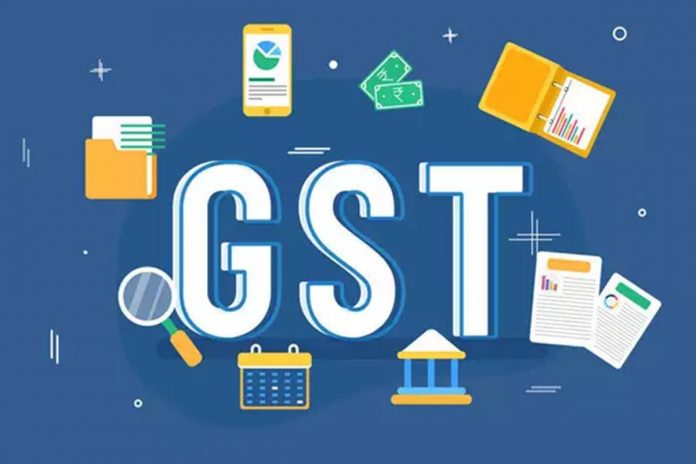This article has been written by Tanishka Gupta pursuing Diploma in M&A, Institutional Finance and Investment Laws and has been edited by Shashwat Kaushik.
This article has been published by Sneha Mahawar.
Table of Contents
Introduction
Towards the end of June 2022, the government extended the deadline for the levy of the GST compensation cess until March 31, 2026, i.e., by almost four years. Initially, the levy of the compensation cess was supposed to be terminated on June 30, but it will now continue to be collected starting July 1, 2022. The decision has been taken by the GST Council, established under Article 279A(1) of the Constitution of India and presided over by Union Finance Minister Nirmala Sitharaman and finance ministers of states. The time frame has been extended so that the Centre could pay back the loans taken in the previous two fiscal years (2020-21 and 2021-22) which were used to make up for the states’ reduced revenue collection. This has been done in accordance with the Goods and Services Tax (Period of Levy and Collection of Cess) Rules, 2022, notified by the Finance Ministry. The Goods and Services Tax (Compensation to States) Act, 2017 states that the cess shall be levied and collected until 31st March, 2026.
Background
Implementation of GST
On July 31, 2017, The Central Goods and Service Tax Act went into effect. At every point of sale, the supply of goods is subject to The Goods and Services Tax (GST), an indirect tax. The states agreed to let the multiplicity of taxes imposed be incorporated under the GST and ceded almost all of their authority to the GST Council to levy local-level indirect taxes, which thereby made possible the establishment of the GST.
Introduction of GST compensation fund
The Constitution (One Hundred and First Amendment) Act, 2016, includes a clause that makes up for the states’ revenue losses as a result of the implementation of the GST. Section 18 of the 2016 Amendment Act states that the Parliament must compensate the states for revenue losses resulting from the implementation of the GST for a period of five years. The GST (Compensation to States) Act, 2017, which was enacted by the Parliament as a result, stipulates that the financial year 2015–16 shall be taken as the base year for the purposes of calculating compensation. As a result, states were guaranteed 14 percent growth in revenues each year. It is to be noted that such a computation mechanism is mentioned under Section 7 of the GST (Compensation to States) Act, 2017.
Levy of compensation cess
On the recommendations of the GST Council, a cess is being levied on goods over and above the GST on a particular item in order to raise funds for compensation. The cess is called the compensation cess. A compensation cess is levied on luxury, demerit, and sin goods over and above the 28 percent tax. The cess is collected by the Centre from consumers and then released to states. The GST compensation fund, a non-lapsable fund in the public account, receives the compensation cess proceeds. According to figures provided by the Central accounting authorities, all compensation payments due to the states are provisionally released from the aforementioned fund every two months. After obtaining the year’s audited accounts from the Comptroller and Auditor General of India, final adjustments are made.
States’ demand for extending the compensation period
Even though the levy of the compensation cess period has been extended until March 2026, whether the states will be compensated beyond five years has not yet been decided by the GST Council. Most non-BJP-ruled states, including, Tamild Nadu, Punjab, Delhi, West Bengal, Chhattisgarh, Kerala, and Rajasthan, have been advocating for a five-year extension of the GST compensation period since 2019. More states began requesting a five-year extension of the payout as June 30, 2022, drew closer. In fact, during the GST council’s meeting on June 29, 2022, around 12 states requested an extension beyond the month of June and hoped for a decision in their favour. Only three to four states mandate that they have to be self-sufficient and independent of any compensation. Some state ministers even wrote to the finance minister, Nirmala Sitharaman, requesting a revision in the GST revenue distribution formula in case the deadline for state compensation is not extended. However, the compensation term extension remains the primary demand. Amit Mitra, the principal chief advisor to West Bengal’s chief minister and finance department, even said that the Supreme Court’s ruling in the Mohit Mineral case would serve as the foundation for all future decisions made by the Council. He also reminded Nirmala Sitharaman about the SC’s observations in the matter in a separate letter.
Why are the states demanding an extension
The states have been demanding the extension on two counts and those are, due to the introduction of the GST and due to the COVID-19 pandemic, which affected revenue collection. They also expect a larger deficit due to the slow rate of income growth and rising expenses. Only five (Arunachal Pradesh, Manipur, Mizoram, Nagaland, and Sikkim) out of the 31 states and UTs had revenue growth greater than the safeguarded revenue rate for states under GST in the fiscal year 2021–2022, according to data on revenue growth gathered for the council meeting. The states with the largest revenue gaps between protected revenue and post-settlement gross state GST revenue in 2021–22 were Puducherry, Punjab, Uttarakhand, and Himachal Pradesh. With COVID-19 widening the gap between protected revenue and actual revenue receipts, including a decrease in cess collection, the states’ protective revenue collection has grown at a slower rate than the guaranteed 14 percent compounded growth.
The states also argue that they have not fully recovered from the losses caused by COVID-19 and now the Ukraine-Russia war poses a threat to the economy. Keeping this in mind, the extension was given, which will help the states recover their economies. States form a nation, and the development of the states is the development of the nation.
How is this compensation funded
A cess is being levied on some goods to provide compensation to the states; this cess, after its collection, is credited to the Compensation Fund. This Compensation Fund provides compensation to the states. GST compensation to states for the years 2017-2018 and 2018-2019 was released timely out of the GST Compensation Fund. But since 2020, the collection for cess has not increased as promised, which was 14 percent, but rather grew at a slower rate. COVID-19 also increased the value between the promised revenue and the actual revenue. So to meet the shortfalls of the states in cess collection, the centre borrowed and released Rs. 1.1 lakh crore for 2020-2021 and 1.59 lakh crore for 2020-2022 as loans, and all the states have also agreed to this decision.
Step by step calculation of the cess amount
Step one: For the states that are in consideration, the revenue for 2016-2017 will be regarded as the base revenue.
Step two: For the 5 years period over which the cess is applicable, the state’s growth rate is considered to be 14% per annum. So based on this, the total amount of revenue for a particular state’s fiscal year that a state could have collected if GST wasn’t there is calculated.
Step three: The amount is then calculated and released every two months. This mechanism is considered to be in effect until July 1, 2022.
GST compensation cess rates of goods
| Goods | GST Compensation Cess |
| Pan masala | 60% |
| Chewing tobacco (with lime tube) featuring a brand name | 65% |
| Chewing tobacco (without lime tube) with brand name | 71% |
| Branded tobacco refuse | 61% |
| Non filter cigarettes not exceeding 65mm | 5% + Rs. 1591 per thousand |
| Non filter cigarettes exceeding 65mm but not 70 mm | 5% + Rs 2876 per thousand |
| Filter cigarettes not exceeding 65mm | 5% + Rs. 1591 per thousand |
| Filter cigarettes exceeding 65mm but not 70mm | 5% + Rs. 2126 per thousand |
| Other types of cigarettes | 5% + Rs. 4170 per thousand |
| Cigar and cheroots | 21% or Rs. 4170 per thousand, whichever is higher |
| Cigarillos | 21% or Rs 4170 per thousand, whichever is higher |
| Cigarettes of tobacco substitutes | Rs. 4006 per thousand |
| Cigarillos of tobacco substitutes | 12.5% or Rs. 4006 per thousand, whichever is higher |
| Hookah or gudaku tobacco bearing a brand name | 72% |
| Tobacco used for smoking hookah or chillum | 17% |
| Other smoking tobacco not bearing a brand name | 11% |
| Smoking mixtures for pipes and cigarettes | 290% |
| Homogenised or reconstituted tobacco bearing a brand name | 72% |
| Preparations containing chewing tobacco | 72% |
| Snuff | 72% |
| Preparations containing snuff | 72% |
| Tobacco extracts and essence bearing a brand name | 72% |
| Tobacco extracts and essence not bearing a brand name | 65% |
| All good, other than pan masala containing tobacco ‘gutkha,’ bearing a brand name | 96% |
| All good, other than pan masala containing tobacco ‘gutkha,’ not bearing a brand name | 89% |
| Motor vehicles (10<person<13) | 15% |
| Small cars (length< 4m; Petrol<1200cc) | 1% |
| Small cars (length<4m; Diesel<1500cc) | 3% |
| Mid segment cars (engine<1500cc) | 15% |
| Large cars (engine>1500cc) | 15% |
| Sports utility vehicles (length>4m; engine>1500cc; ground clearance>170mm) | 15% |
| Hybrid motor vehicles | 15% |
| Motorcycles | 3% |
| Aircrafts for personal use | 3% |
| Yacht and other vessels for pleasure or sports | 3% |
Conclusion
The issue has witnessed many opinions and views by states, wherein it has been said that the consequences for states should the compensation not be extended would be very negative and devastating in some cases. If the protective revenue provision is not maintained, it has also been suggested that the current 50:50 split between Central GST (CGST) and state GST (SGST) should be amended to 70–80% for states and 20–30% for CGST. On the other hand, the Centre has argued that because of the pandemic, the cess has been extended by an additional four years and that it is currently impractical to offer additional compensation. It is still to be seen whether the compensation period for states will be extended, and a final decision regarding it may be taken at the next GST Council, which will be held in the first week of August.
References
- https://www.indiafilings.com/learn/gst-cess/
- https://www.paisabazaar.com/tax/gst-compensation-cess/#:~:text=GST%20Compensation%20Cess%20is%20levied,for%20the%20GST%20composition%20scheme.
- https://www.thehindubusinessline.com/blexplainer/all-you-need-know-about-gst-compensation/article38077384.ece
- https://byjus.com/free-ias-prep/gst-compensation-cess-upsc-notes/
- https://cleartax.in/s/gst-compensation-cess
Students of Lawsikho courses regularly produce writing assignments and work on practical exercises as a part of their coursework and develop themselves in real-life practical skills.
LawSikho has created a telegram group for exchanging legal knowledge, referrals, and various opportunities. You can click on this link and join:
Follow us on Instagram and subscribe to our YouTube channel for more amazing legal content.
 Serato DJ Crack 2025Serato DJ PRO Crack
Serato DJ Crack 2025Serato DJ PRO Crack












 Allow notifications
Allow notifications


